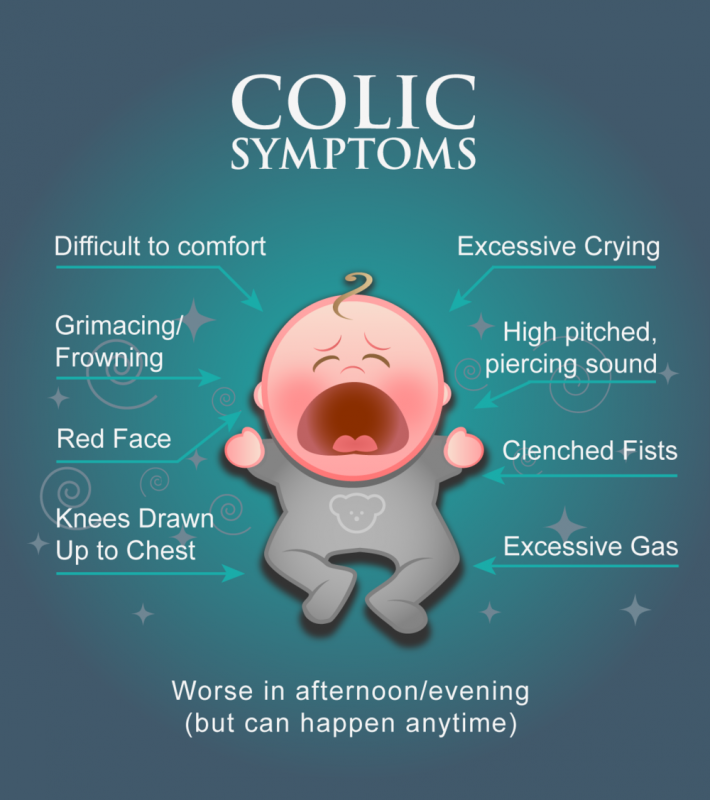Colic or abdominal pain or cramps are sudden attacks of gut irritation, bloatedness and discomfort. It may present as prolonged crying i.e. unsettled baby and can stop as suddenly as it starts. Crying often starts in the evening, especially before bedtime. The infant seems to be in pain and will show this by stretching, arching or lifting their legs. The abdomen may also be swollen and the infant may pass a lot of wind.Highlighted
What causes colic? Is it real?
The exact causes are unknown but the pain is real. However, there are some factors which may contribute to the symptoms.
- Overfeeding without burping
- The emotional stress of both baby and parents
- Constipation
- Food intolerance/allergy
What can I do when my baby has colic?
There is no specific treatment for colic and the management of colic is just a matter of trial and error. Sometimes whatever you try may just be in vain. However, comforting the child by holding him in an upright position to facilitate burping or by massaging the baby’s abdomen can help to alleviate colic pain. You should also make sure to not overfeed or underfeed your baby and to treat constipation which can be an underlying cause. Probiotics, a good and friendly type of bacteria that is administered to your baby’s intestine may be helpful.
What are the warning signs that I should be worried about?
Inconsolable crying associated with:
- Persistent vomiting (especially greenish vomitus)
- Severe abdominal distension and hard on palpation
- Failure to gain weight
- Passing blood-stained stool or stool with mucous
- Inactive and lethargic looking baby with poor feeding/sucking
When to bring my “colicky baby” to see the doctor?
You should bring your baby to see a paediatrician immediately if he starts crying inconsolably, has abdominal distension and refuses to feed. Your baby’s doctor will then make sure that nothing serious will happen to your baby. Additionally, the doctor will also reassure you with some good advise/tips on good feeding techniques. If the symptoms worsen, your paediatrician may prescribe colic drops to ease the pain or probiotics to facilitate digestion and gut motility. Your baby’s doctor will also try to exclude any possibility of food allergy/intolerance in your baby, which may require further dietary modifications.
What are the tips for mothers dealing with “colicky” babies?
As mentioned above, there is no known cause of abdominal colic but there are some contributory factors that may lead to colic in infants. Exclusively breastfeeding with correct feeding techniques, right feeding position, smaller amount with more frequent feeding regime, especially for bottle-fed infants and burping in between the feeds are some of the ways to prevent the excessive accumulation of air in your baby’s stomach. If you are too stressed out about handling your “colicky” baby, it is advisable to take a break by asking for help. You will be able to handle your baby better after some respites from the crying episode, which is very important for both you and your baby.
However, occasionally, your baby will just develop colic no matter what feeding practices you adopt. But the good news is that most infants will outgrow this “colic” problem when they reach three months of age.
About the Writer
Dr Khoo is a consultant paediatrician and neonatologist at Sunway Medical Centre. He obtained his paediatric postgraduate membership from the Royal College of Paediatric and Child Health (MRCPCH) in Glasgow, UK in 2003. He continued his neonatal subspecialty fellowship training in 2005 at Liverpool Hospital and the Royal Hospital for Women (RHW), Sydney, NSW, Australia. In addition to his paediatric practise, Dr. Khoo also lectures part-time at the Jeffrey Cheah School of Medicine and Health Sciences, Monash University, Sunway Campus.
